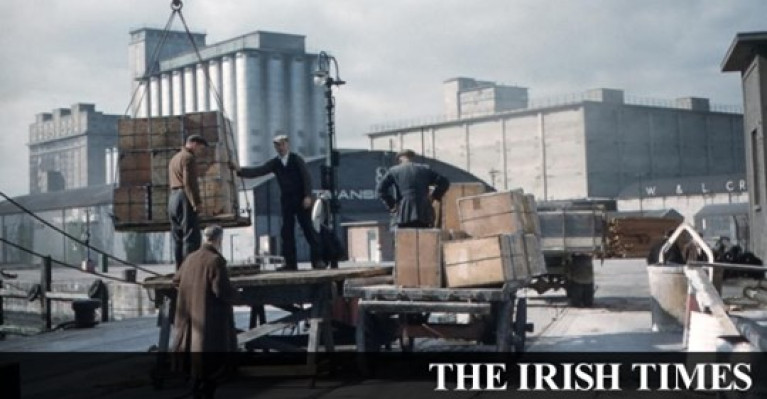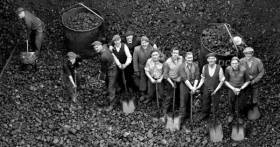Displaying items by tag: Dockers
Old Dublin Port Photographic Archives Depict Dockers and A ‘Duchess’ full of Apples
There has been in recent years an explosion of public interest in historical photographs. As The Irish Times reports, the profusion of social media sites dedicated to the past, and cultural institutions such as the National Library and National Museum now regularly host exhibitions of historical photos.
Public companies have also recognised the importance of photographic archives. One Irish company now delving into its heritage is Dublin Port Company, whose archive dates back 300 years. It recently appointed a full-time heritage officer to oversee the company’s archive of photographs (including ships & dockers), engineering drawings, maps, charts and company records dating back 300 years.
A sizeable amount of the Dublin Port Company archive is made up of photographs from the late 19th century up to the late 20th century, including black and white glass plate negatives and colour transparencies. The majority are glass plates depicting site reports of engineering projects undertaken by the Dublin Port and Docks Board, such as the construction of Butt Bridge, completed for the 1932 Eucharistic Congress.
For more click here. On a related story, last month the DPC stepped in to preserve historic archives.
Cork Calls to Remember Dockers in Regeneration Plans
In what will be a permanent reminder, EchoLive writes, are the Cork’s dockers and docking industry which is being sought as part of the area’s regeneration.
Councillor Thomas Gould has asked Cork City Council to invite submissions from the public on how the history of the trade, which has disappeared since the final rationalisation of the Port of Cork, can be remembered as part of plans to expand the city centre into brownfield sites along the quays.
The last 100 dockers in the city collected their redundancy packages in February 2009. Some had worked in the trade for almost 50 years.
A recent play on the subject of the dockers by Marion Wyatt ran to rave reviews in Cork over the summer and a second run finished this month.
For more click here.































































